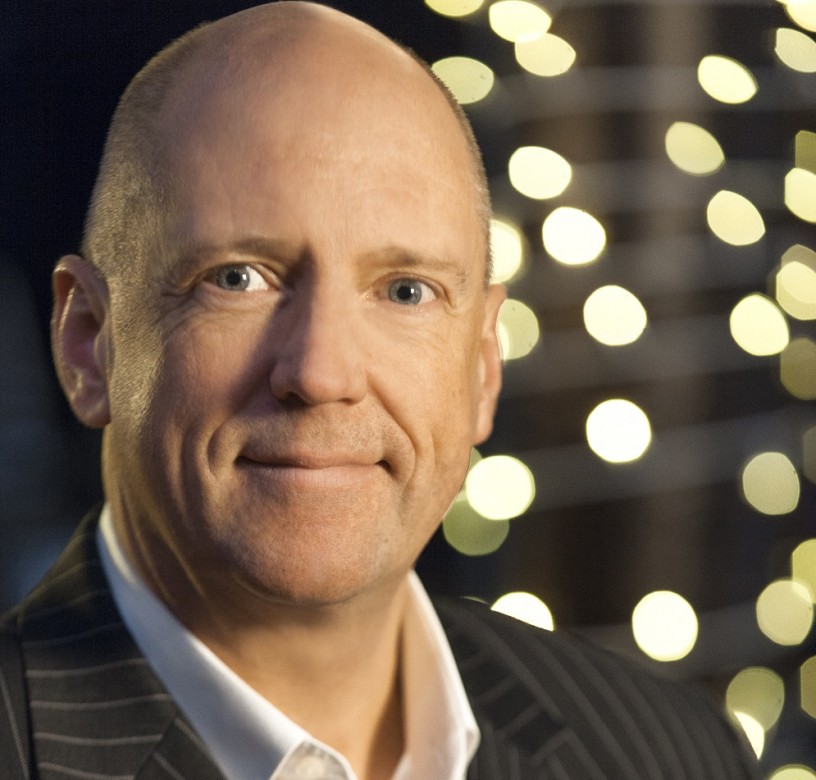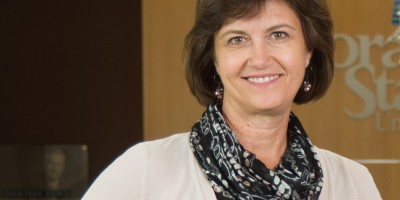In the spotlight:
Name: John Anderson
Location: Perthshire
Occupation: Head of SME Engagement, Strathclyde Business School, Glasgow
You are an influential individual within the enterprise/entrepreneurship education space. What does ‘enterprise education’ mean to you, and why do you think it’s important?
Enterprise education is a wide-ranging term and, in Scotland, covers everything from giving primary school children a fun introduction to the idea of what business is about and what being enterprising means (confident, can-do attitude), to introducing the idea of starting or seeking employment in a small business as a career option for secondary school students, to further and higher education with a deeper dive into all aspects of entrepreneurship.
When I first started studying entrepreneurs in Scotland in the mid-1990s I was initially surprised how few of my “Local Heroes” had grown up with entrepreneurial role models, and realised that the makeup of the Scottish economy meant that we had a lost generation – the parents of today’s schoolchildren and students who had had no exposure to or knowledge of ambitious business builders. It was simply the result of the nature of the employment base in Scotland. We knew that if we wanted to change things to make entrepreneurship, ambition and success more acceptable, we needed to start at school and educate a new generation rather than try to change the minds of the lost generation.
How did you first become involved with enterprise education?
In the late 1980s I was working in Chicago with Ernst & Young and became friends with a fellow audit manager who had an MBA in Entrepreneurship. I remember challenging him over a beer or two – saying you can’t teach entrepreneurship. He vowed to prove me wrong and I ended up going to Babson College for a short course in entrepreneurship and immediately got it. Entrepreneurship is not a dry academic subject: you can’t research it or teach it without the explicit involvement of the entrepreneur – whether the subject of a case study, or in the classroom as a guest lecturer, or as a host for student projects. Once I grasped this, I chose to develop my knowledge further by doing my own MBA at Strathclyde Business School, taking the entrepreneurship elective. I then offered to come into the classroom to help with undergraduate and postgraduate entrepreneurship classes at the point that serious entrepreneurship education was introduced in Scotland – over 20 years ago!
The ladder of enterprise education and entrepreneurial learning continues with the programme that we run at Strathclyde Business School for entrepreneurs who are looking to significantly grow their businesses – the Growth Advantage Programme. This course is based on what we still consider to be the core principles of enterprise education – real-life learning.
Earlier this year, you were appointed to chair the investment arm of Homes for Good, Scotland’s first social enterprise letting agency (winner of Social Enterprise of the Year at the 2016 Scottish Social Enterprise Awards). What inspired you to take on this post in particular – and do you feel more could (or should) be done to involve entrepreneurs in the social enterprise sphere?
I had known Susan Aktemel – the inspiring founder of Homes for Good – for many years, having first met her when she won an Ernst & Young Entrepreneur of the Year award (for her previous social business, Impact Arts). It was an honour to be asked to join her latest business as an independent chairman, and help her to grow Homes for Good Investments. Our investors are true impact investors, and are prepared to accept a lower rate of financial return on their investment because of the measurable social impact we have on the lives of vulnerable people – those we can provide a home for as they seek to rebuild their lives. I strongly believe that successful businesses can have a very positive impact on society, creating wealth and prosperity for communities. To do good in the social business arena, the business needs to be professionally run, and have a clear purpose and sustainable business model. Susan is a fantastic role model for social entrepreneurs in the UK.
How have your own experiences as a business owner and entrepreneur influenced your teaching?
Entrepreneurship education at Strathclyde combines world-leading research and real-life insights and really brings the subject to life – just like my very first experience at Babson. I teach a case study based on an early-stage venture-backed business that I joined and invested in a long time ago. The case draws out some of the significant challenges that every high-growth venture faces, but I can bring the reality of the tough times directly into the classroom – in a very personal way. I contribute to the Growth Advantage Programme in exactly the same way – relating the material we cover to many of the experiences I have had as practitioner, adviser, board member or investor.
Can enterprise be included at all stages of education, and within every subject? If yes, how? If no, why not?
We have demonstrated that enterprise education can start in primary school and there is a clear pathway through all stages of education. The key is the consistent use of language from stage to stage and the active engagement of entrepreneurs and business owners at each level. The work of ‘Determined to Succeed’ [an enterprise education programme for secondary school students that John has been involved with since the mid-noughties] has now been incorporated into the national curriculum in Scotland, and there is a whole new generation of gifted teachers who have the training, the material and the confidence to inspire our young people to be enterprising and contribute positively to society – not necessarily by starting a business.
Where do you hope to see enterprise education in five years’ time?
There are proven programmes all over the country and it is important to keep that community together. As budgets get tightened and tough choices need to be made, entrepreneurs and educators should continue to work together to promote best practice and demonstrate to central and local government that enterprise education is where it should all start – if we are to grow a prosperous economy that positively impacts on people’s lives, that is. This is a generational shift and we cannot stop now.
What does a typical day look like in the world of John Anderson?
I sometimes wish there was a typical day, but there never is. I can honestly say that being able to spend time with ambitious business builders with a passion to change things – day in day out – is worth the long hours and sometimes frantic juggling of family and work.
And finally, John, tell us: if you were an animal, what would you be and why?
Great question. I tried a quick online test and the result was a fox – and the personality description fitted quite well. The problem is that last year a fox killed all our chickens so is absolutely my least favourite animal. As such, I’ll go with its near relative, a dog – specifically one of the black labs that we breed. Intelligent, loyal, biddable (mostly), hardworking and good company for a day out in the field, although occasionally prone to eating too much!






Leave a Reply